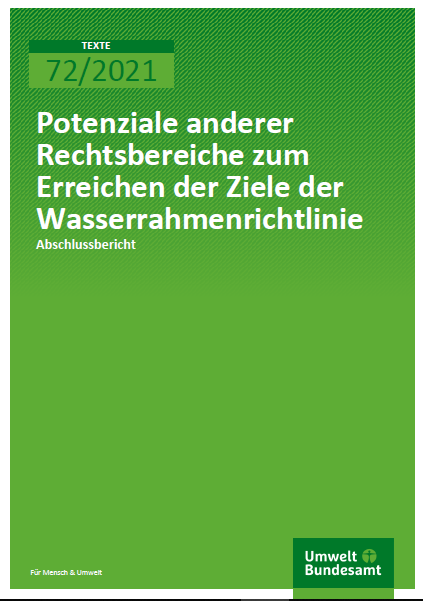Potential of Other Legal Areas to Achieve the Objectives of the Water Framework Directive
- Project
- Duration
-
-
Ecologic Institute prepares a study for the German Environment Agency by the beginning of 2020, identifying legal norms beyond water law that can contribute more strongly to effective implementation of the Water Framework Directive (WFD). The study is funded under the Environmental Research Plan.
With the adoption of the WFD, the Member States of the European Union set themselves ambitious water quality targets in 2000. Surface water and groundwater are to be transferred to a good status. The implementation of these objectives requires not only a further containment of nutrient and pollutant loads, but also extensive design measures for ecological watercourse development, for example to achieve the necessary river continuity.
Although the water quality objectives should be achieved by 2015 at the latest, not even 10 percent of surface waters in Germany today have a good ecological status. There are many reasons for this. In many cases it was not possible to create the necessary financial, personnel and organizational conditions for achieving the water quality objectives. The aim of the project is to examine the extent to which it has not been successful so far to coordinate the legal areas relevant for the implementation of the WFD in such a way as would be necessary for horizontal coordination.
As part of the study, Ecologic Institute identifies legal standards that can promote the achievement of the WFD objectives. The main concern is to look at legal norms beyond water law.
The following problems are, among others, in the focus:
- Pollution of waters by technical infrastructure, industrial installations, waste disposal and mines
- Introduction of chemicals, pharmaceuticals, biocides and plant protection products into the water
- Perverse incentives through agricultural subsidies and the promotion of renewable energies
- Conflicting objectives between water protection and nature and soil protection
- Integration of watercourse development into spatial planning, environmental planning and urban land-use planning
- Use of land readjustment procedures for watercourse development
Due to ongoing amendment procedures, the legal norms for fertilizers and waterways are not considered.
Based on the deficits in the achievement of the objectives of the WFD, the study will identify the respective legal norms, describe their mode of operation and point out adequate legal options for action. In this way, the study can be used as a source of information in future legislative procedures in order to resolve conflicts of objectives in the long term and release the potential of other legal areas to achieve the objectives of the Water Framework Directive



